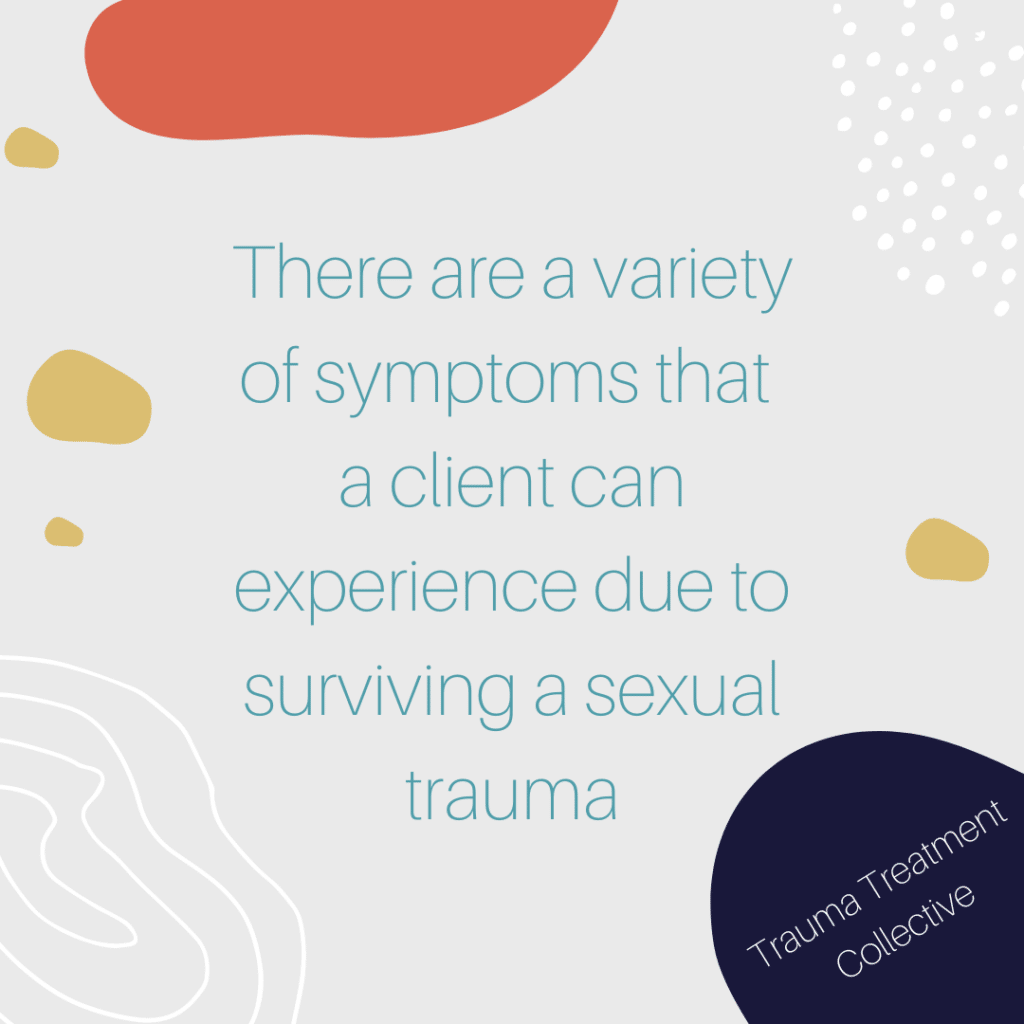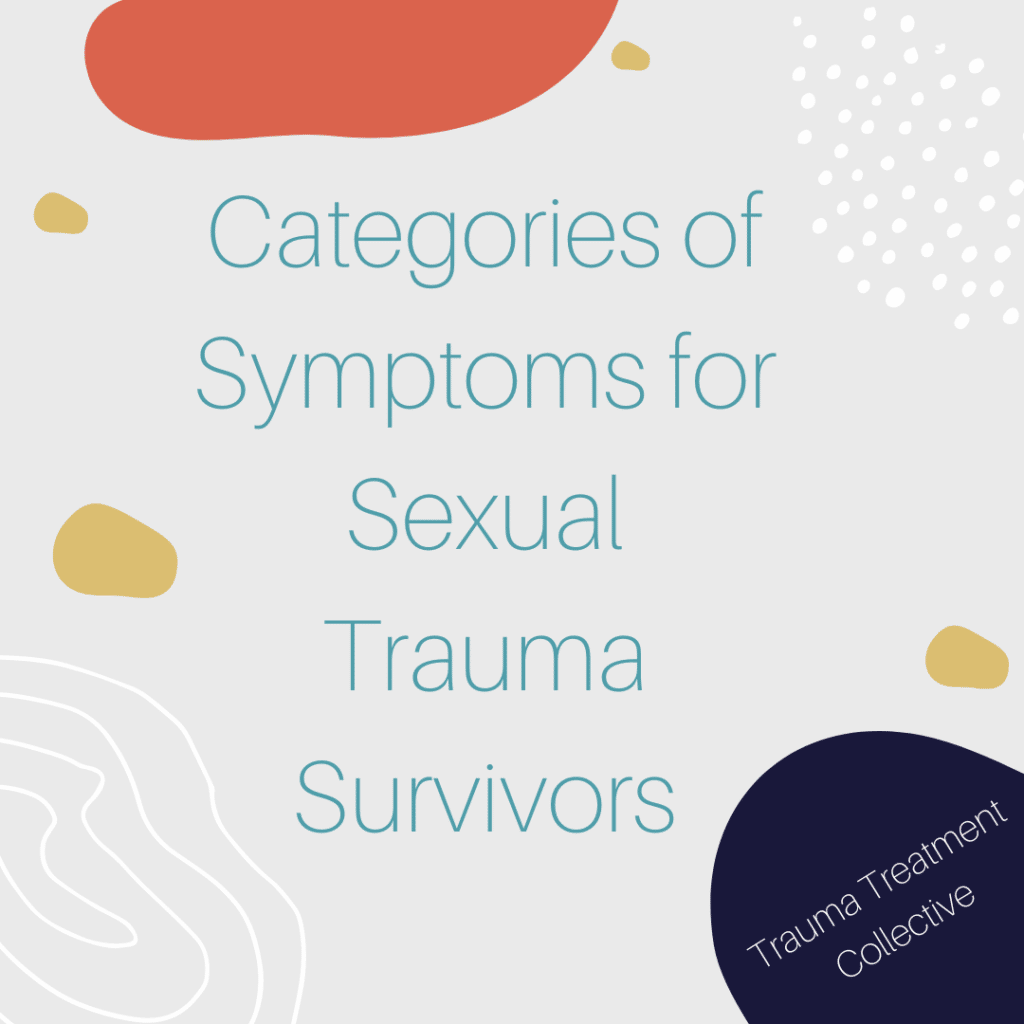With so many ways to experience sexual trauma, there are also a variety of symptoms that a client can experience due to surviving a sexual trauma. These traumas can also happen to clients at any time in their life, which also impacts the way symptoms might show up for your client.
To learn more about the different types of traumas a client can experience, check out this blog post.

As we think about assessing sexual trauma in our clients, it is important that we remember all our clients are different and their symptoms will show up different. To help with this wide variety of presentations, I want to invite you to consider thinking about symptoms in categories instead of specific behaviors.
Viewing sexual trauma symptoms through the lens of categories allows you to have more range in your assessment skills and allows you to identify symptoms that might be otherwise overlooked.

Below we will attempt to move away from a list of common behaviors in hopes of helping you think more systemically when assessing sexual trauma survivors.
Boundaries
Survivors may struggle with rigid boundaries in hopes of maintaining safety or because they are not sure how to enact boundaries at all. Many times, clients need support in developing healthy boundaries.
Guilt and/or Shame
Survivors may struggle with some form of feeling like what has happened is their fault and/or that they are dirty, bad, or broken.
Minimizing or Denial
Survivors may deny that anything happened at all hoping that in some way they will forget or it will go away. If they are not in total denial, they may struggle with belittling their experience.
Dissociation or Disconnection
Survivors may struggle with feelings of floating or observing themselves from outside of their bodies. They also may have a feeling of disconnection from part of or from their entire body.
Physical or Emotional Distress
Survivors may have unexplained pains and aches in their body and/or intense emotional responses to different things that feel overwhelming at times.
Struggles with Trust and Sense of Safety
Survivors may struggle to feel safe in several different ways. Because of the overall loss of their sense of safety, they might struggle to trust in several different ways. This could lead to struggles with isolation or repeated revictimization.
By thinking about symptoms for a sexual trauma survivor in the form of categories, it helps you to account for the individuality of a survivor’s experience as well as identify easily overlooked symptoms. The hope is, with thorough assessment, the client will get the treatment they need to fully recover from their traumatic experience. If you are working with a sexual trauma case that is proving to be challenging, consider booking an individual consult with us here to help you navigate through.

